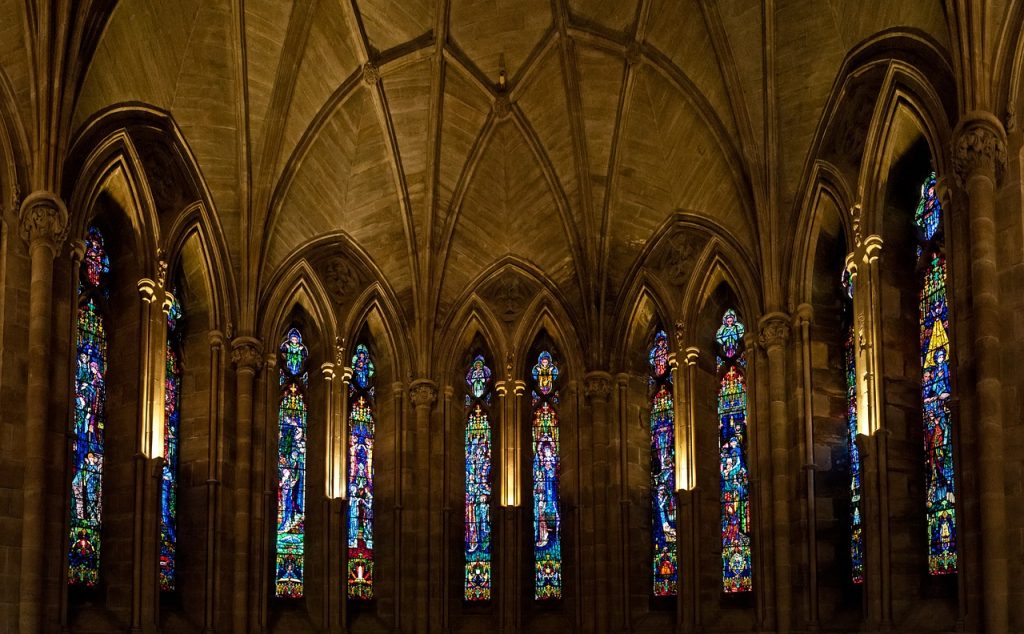Habakkuk’s Psalm
Chapter three of Habakkuk is a psalm. In the last verse of the book he wrote “to the choirmaster with MY stringed instruments.” (Habakkuk 3:19, my emphasis. The possessive is not translated in some translations.) Habakkuk was probably a leader among the Levitical musicians.
This psalm answers the question of chapter one.
The wicked do not go unpunished. God is coming to defeat his enemies. Habakkuk reflected on what God has done in the past and trusted him for the future. The psalm asked God to come and do what he has done before. God is praised in this way in other Scriptures. (Deuteronomy 33:1; Judges 5:4-5; Psalm 18:7-15; Psalm 68:4-10, 32-35; Psalm 77:16-19; Micah 1:3-4).
The psalm has many references to God’s past actions. Teman means southland and alluded to the time of the Exodus. Mount Paran is near Kadesh Barnea. God used plagues against Egypt. Rivers and streams may refer to the Nile, the Red Sea and the Jordan. Midianites were involved in plots against the Jews with the Moabites. The sun standing still alluded to Judges 10:12-13. The leader of the land of wickedness is probably Pharaoh and the Egyptians were crushed in the Red Sea. (Habakkuk 3:3, 5, 7, 8, 11, 13-15)
This recounting of God’s mighty acts left the prophet in awe. He will wait. The Babylonian invasion will be real and devastating. Through it all the Sovereign Lord will be his strength. God will give his people strength to bear this trial. Habakkuk began by questioning God and ended by praising him (Habakkuk 3:16-19)
What happened to Habakkuk? We read his dialogue with God. We can identify with his longing for justice. He was told that judgement was coming and that the just will live by faith through this perilous time. The twenty years between his prayer and the destruction of Jerusalem was one of steep moral and political decline for the Jews.
What happened to Habakkuk? We do not know. We do have the words and significant life events of three prophets who lived through those times and are examples of living by faith. Jeremiah, Ezekiel and Daniel lived through the time of decline and judgement.
The Scriptures were not given at an even pace over the centuries. There were time of great outpouring and times of relative silence in the 1500 years between Moses and the Apostle John. The book of Psalms contains a psalm written by Moses and some from the time of the exile 900 years later.
There was a great outpouring during the time of the greatest judgement. The prophets who spoke just before, during, and after the fall of Jerusalem and the Babylonian captivity were evidence that even in a time of judgement and consequences God did not abandon his people.
Habakkuk Was Humble
Like Jonah, Habakkuk gave insight into his thoughts that only he could give. He was humble enough to let readers see him grow as he questioned God. He learned that God was in control and he has a plan. He uses wicked people. His plan is not always clear to us.
Habakkuk also shows us that we can question God about the most basic issues. Why is there evil in the world? Why does evil go unpunished? Why doesn’t God answer prayer? How does he answer prayer?
Abraham in Genesis 15 who was told that his descendants would not receive the promised land for four hundred years. We may not see the full answer to our prayers in our lifetime. We are fallen and finite and can’t fully fathom God’s plan unless it is revealed to us. Job and his friends couldn’t see into heaven. (Job 1-2; 42:7-17; 38-41)
God’s majesties should provoke us to praise. We can be confident in his plan to bring history to its consummation.
Never miss out!
Get email updates whenever I publish new content.


Last words, “God’s majesties should provoke us to praise,” are excellent. I thought that also, the praise, to be appropriate should be MAJESTIC! And not in contemporary ‘ditty’ form. Church music in too many instances is plumbing the depths instead of ascending the heights. Selah!
Thought provoking post! Rob